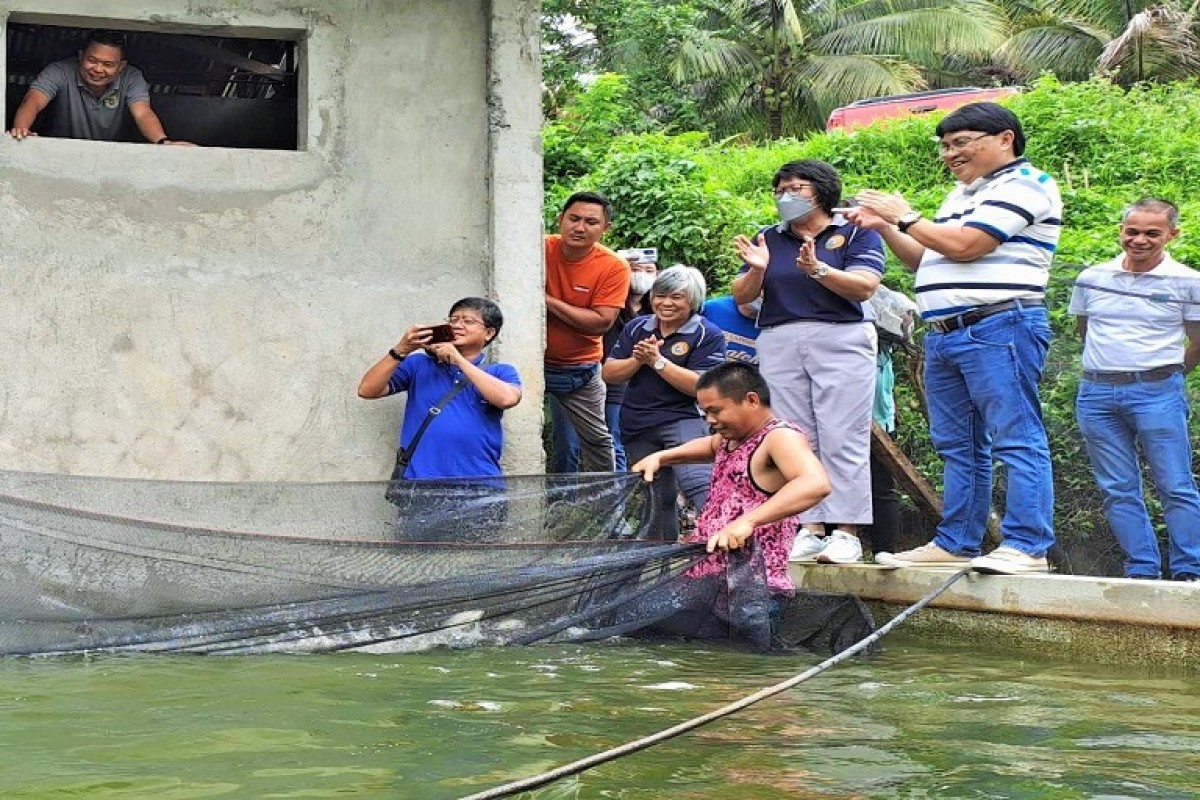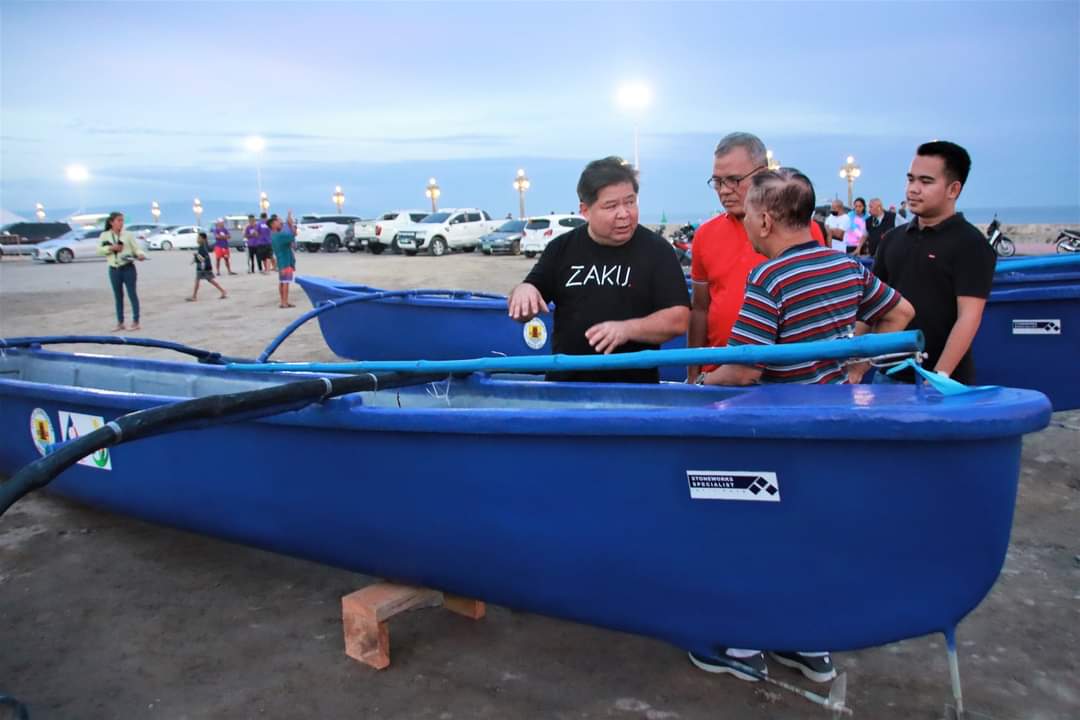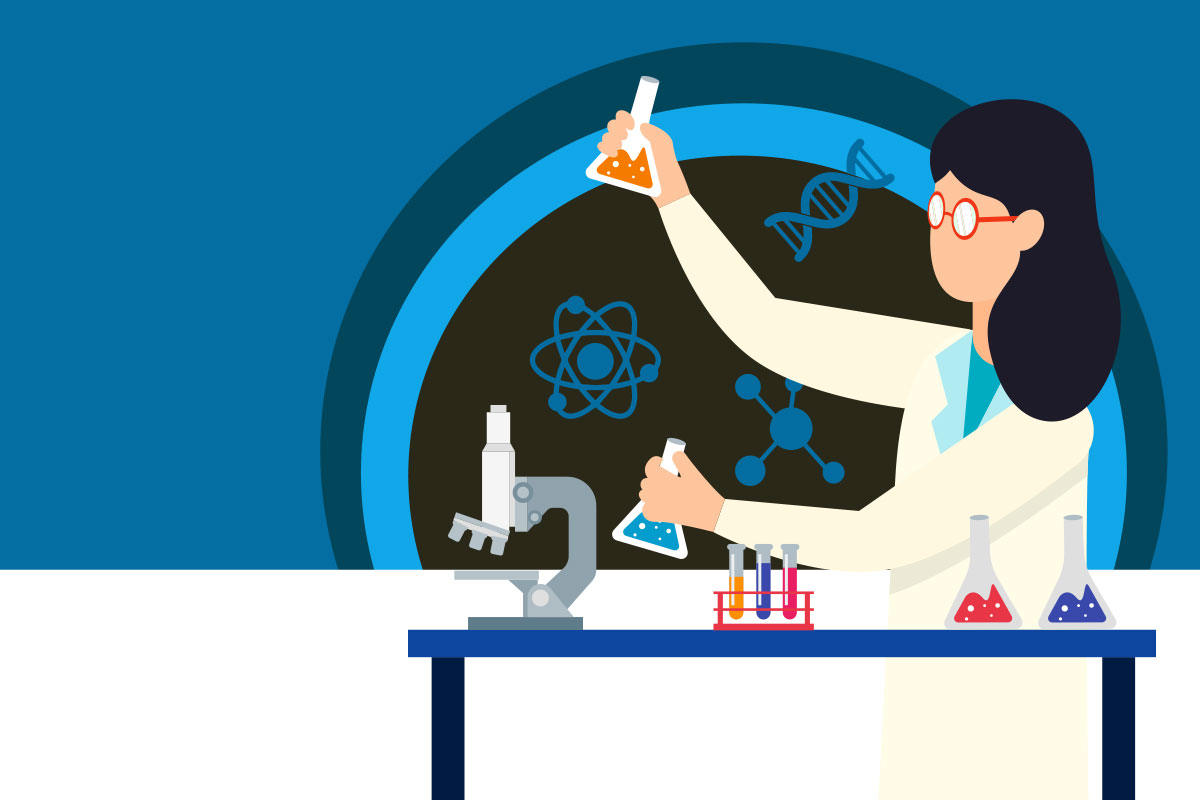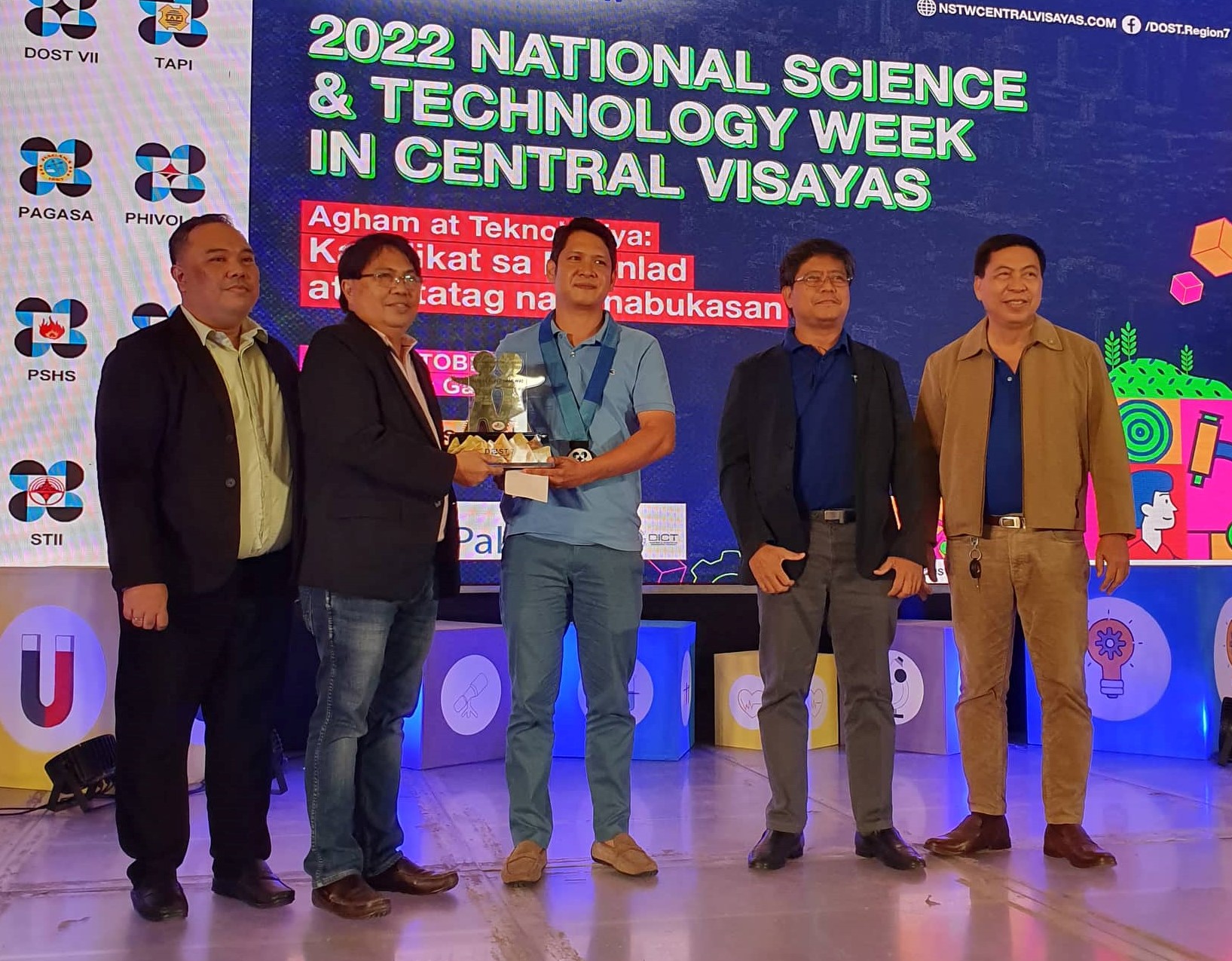
DUMAGUETE CITY, Negros Oriental, Jan. 27 (PIA) -- Upland fisherfolks in Janayjanay, San Jose harvested its first batch of tilapia fish which were farmed and bred in their own facility that was built through the help of the Department of Science and Technology (DOST) under its Community Empowerment Thru Science and Technology (CEST) Program.
The ceremonial harvesting of tilapia fish was held on Jan. 25 attended by DOST7 officials and its partners, the Janayjanay Farmers Association (JFA) and the Negros Oriental State University (NORSU).
Other agencies present were the Department of the Environment and Natural Resources (DENR), Local Government Unit of San Jose, and the Provincial Agriculturist Office.
DOST7 provided the funds for the construction of fish pens for upland fisheries while the NORSU Extension Office was tapped to implement it.
The JFA was the beneficiary of the project and was tasked to manage the said facility.
In his message, DOST7 Regional Director Engr. Jesus Zamora expressed the agency’s continued support to the upland community in Janayjanay and its commitment to promote science and technology interventions to strengthen food security and people’s nutrition intake.
“Ang panghinaut namo sa DOST nga mapadaghan ninyo ang mga tilapia ug ma-sustain ninyo kini nga project (Our dream is for you to increase your tilapia production and sustain this project),” Zamora said.
In response, JFA President Eduardo Pegarum assured the other agencies involved that they will make this project sustainable.
“Among paningkamotan nga sa mga molabay nga mga adlaw molambo gyud ning maong proyekto. Amo gyung ning atimanon kay kini gihatag gyud para kanamo (We will do our best in the coming days to improve this. We will take care of this since it has been given to us),” Pegarum said.
DOST Negros Oriental Information Officer-Designate Engr. Reinhold Jek Abing explained that CEST is a package of science and technology interventions that aims to build progressive, empowered, and resilient rural communities.
“The program is targeting to empower the poorest and most depressed communities in the country, via science and technology interventions in health and nutrition, water and sanitation, basic education and literacy, livelihood/economic enterprise development, and disaster risk reduction and climate change adaptation,” he added. (RAL/PIA7 Negros Oriental with reports from DOST NegOr PIO)





